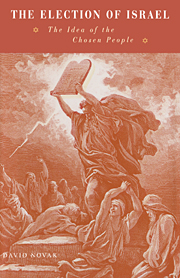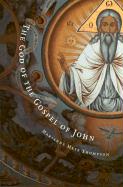THE COMFORTER
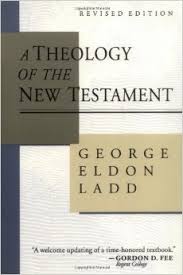
“This is reflected in numerous sayings. The Kingdom is like a treasure or a costly pearl whose possession outranks all other goods (Mt. 13:44-46). It is something to be sought here and now (Mt. 6:33) and to be received as children receive a gift (Mk. 10:15 = Lk. 18:16-17). In this saying the Kingdom is God’s rule, but it includes the gift of his rule. The divine reign is not a fearful power before which people are compelled to bow, but a gift. Children exemplify the trustfulness and receptivity required of the ‘sons of the Kingdom.’ The Kingdom belongs to them, not because their humility is a virtue that merits it, but because they are responsive. ‘The Kingdom belongs to such because they receive it as a gift…. [It] is the gift of the divine rule.’ Matthew 19:14 echoes the same thought that the Kingdom of God is a present possession of the childlike. The promise that those who ask shall receive, and those who seek shall find (Mt. 7:7), is to be understood in this context. ‘The thing to be sought is the Kingdom of God, which, being found, is the satisfaction of all needs (Lk. 12:31). The door to be knocked at is the door which gives entrance into the Kingdom of God.’”- George Eldon Ladd
The New Age of Salvation
We saw in the last chapter that the meaning of basileia (‘kingdom’) cannot be reduced to a single concept but is a complex concept with several facets. Its root meaning is the reign or rule of God. It can designate the eschatological act of God when God acts… It can also designate the future realm of salvation into which God’s people will be gathered to enjoy the blessings of his reign. As such, it is interchangeable with the Age to Come.
The most distinctive fact in Jesus’ proclamation of the Kingdom was its present inbreaking in history in his own person and mission. We should not be surprised to find basileia tou theou (‘Kingdom of God’) used of a new realm of redemptive blessing into which people enter by receiving Jesus’ message about the Kingdom of God…
The Kingdom as a Present Gift
When we ask about the content of this new realm of blessing, we discover that basileia means not only the dynamic reign of God and the realm of salvation; it is also used to designate the gift of life and salvation. Here is another original element in Jesus’ teaching. The Kingdom of God stands as a comprehensive term for all that the messianic salvation included. Dalman recognized that the Kingdom in Jesus’ teaching could be ‘a good which admits of being striven for, of being bestowed, of being possessed, and of being accepted.’
In the eschatological consummation, the Kingdom is something to be freely inherited by the righteous (Mt. 25:34). The word here designates neither the reign of God nor the Age to Come but the blessing of life that is the gift of God’s rule in the coming age (Mt. 24:46). In answer to the young man’s question about inheriting eternal life (Mk. 10:17), Jesus spoke of entering the Kingdom (10:23-24) and receiving eternal life (10:30) as though they were synonymous concepts.The Kingdom is a gift that the Father is pleased to bestow upon the little flock of Jesus’ disciples (Lk. 12:32).
If God’s Kingdom is the gift of life bestowed upon his people when he manifests his rule in eschatological glory, and if God’s Kingdom is also God’s rule invading history before the eschatological consummation, it follows that we may expect God’s rule in the present to bring a preliminary blessing to his people. This is in fact what we find. The Kingdom is not only an eschatological gift belonging to the Age to Come; it is also a gift to be received in an old aeon.
This is reflected in numerous sayings. The Kingdom is like a treasure or a costly pearl whose possession outranks all other goods (Mt. 13:44-46). It is something to be sought here and now (Mt. 6:33) and to be received as children receive a gift (Mk. 10:15 = Lk. 18:16-17). In this saying the Kingdom is God’s rule, but it includes the gift of his rule. The divine reign is not a fearful power before which people are compelled to bow, but a gift. Children exemplify the trustfulness and receptivity required of the ‘sons of the Kingdom.’ The Kingdom belongs to them, not because their humility is a virtue that merits it, but because they are responsive. ‘The Kingdom belongs to such because they receive it as a gift…. [It] is the gift of the divine rule.’ Matthew 19:14 echoes the same thought that the Kingdom of God is a present possession of the childlike. The promise that those who ask shall receive, and those who seek shall find (Mt. 7:7), is to be understood in this context. ‘The thing to be sought is the Kingdom of God, which, being found, is the satisfaction of all needs (Lk. 12:31). The door to be knocked at is the door which gives entrance into the Kingdom of God.’
The Beatitudes view the Kingdom as a gift. The poor in spirit, those persecuted for righteousness’ sake, receive the gift (Mt. 5:3, 10). It is not easy to decide whether the Kingdom is these sayings is future or present. The Beatitudes certainly have an eschatological cast. The sayings about inheriting the earth, obtaining mercy (in the day of judgment), and seeing God are primarily eschatological. However, the main objective of the Beatitudes is to teach a present blessedness rather than to promise blessing in the consummation. The comfort for those who grieve because of their spiritual poverty is both present and future, as is the satisfaction of the hungry (Mt. 5:4, 6). The gift of the Kingdom, twice mentioned, probably includes both present and future. The Beatitudes expound both the eschatological salvation and the present blessedness.
The Gift of Salvation
The Kingdom as God’s gift may be further illustrated by a study of the word ‘salvation.’ In the Gospels, the words ‘to save’ and ‘salvation’ refer both to an eschatological and a present blessing.
Salvation is primarily an eschatological gift. In Jesus’ answer to the rich young ruler about eternal life, salvation is synonymous with eternal life and entrance into the Kingdom of God in the Age to Come (Mk. 10:17-30). This eschatological salvation is elsewhere described merely as a saving of one’s (true) life in contrast with losing one’s physical life (Mk. 8:35; Mt. 10:39; Lk. 17:33). This eschatological salvation can be described simply as entrance into (eternal) life (Mk. 9:43; Mt. 25:46) or into the joy of the Lord (Mt. 25:21, 23).
This future salvation means two things: deliverance from mortality, and perfected fellowship with God. The Gospels do not say much about resurrection, but the saying of Luke 20:34-36 (cf. Mk. 12:24-27) makes it clear that eschatological salvation includes the whole person. Resurrection life will have something in common with the angels, namely, the possession of immortality. This immortal resurrection life is the life of the Age to Come (Lk. 20:35). The evils of physical weakness, sickness, and death will be swallowed up in the life of the Kingdom of God (Mt. 25:34, 46).”
George Eldon Ladd, A Theology of the New Testament
Wm. B. Eerdmans Publishing Company (1993) pp. 68-72
“Ladd’s New Testament Theology is a helpful introduction to the Biblical Theology of the New Testament. Ladd’s primary contribution to the field of Biblical Theology is the incorporation of the ‘already’ ‘not yet’ eschatological dimension into New Testament theology. In his work he argues that there is a tension between realized and future eschatology throughout the entire New Testament. The future Kingdom of God has broken into the present and has radically shifted the entire redemptive history of the New Testament. While this Kingdom of God has become a present reality the entirety of its reign remains a future hope. This tension exists throughout the entire New Testament.”- William E. Turner
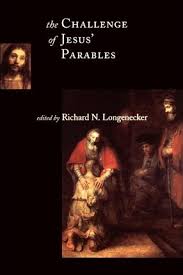
“But while the authenticity of these parables can be critically defended, many believe it impossible to speak about Jesus’ purpose in giving them. There are, however, a number of features in these parables that seem to reflect something of Jesus’ own intent and what he wanted to teach his disciples about his ministry (and, derivatively, their ministries) and about the reign of God in people’s lives and in the world.
First, it needs to be noted that implicit in both the Parable of the Mustard Seed and the Parable of the Leaven — whether in all three Synoptic Gospels, as with the former, or only in Matthew and Luke, as with the latter — are suggestions that the growth of the reign or “kingdom” of God takes place through the mysterious operation of divine power (whether represented as being in the seed itself or in the leaven) and that such divine power is already at work in Jesus’ preaching. As Joseph Fitzmyer notes regarding the Parable of the Mustard Seed: “The parable implies the same divine operation of which Ezek 17:22-24 spoke explicitly, in connection, however, with a cedar (cf. Ezek 31:2-9)” (Luke 2:10-16)…
It may be postulated, therefore, that Jesus’ intent in giving the Parable of the Mustard Seed and the Parable of the Leaven to his disciples was not only to assure his disciples that the kingdom of God would surely come, but also to reveal something of importance to them about his ministry, their ministries, and the nature of the reign or “kingdom” of God vis-a-vis their inherited understandings of ministry and the kingdom of God. In these two paired parables, therefore, it may be postulated that he wanted his disciples to be assured that the kingdom of God would certainly come, whatever might be thought about its beginnings in his or their ministries. But also, it seems, he wanted them to realize (1) that the kingdom would come about only through the mysterious operation of divine power, not by human authority, expertise, or ingenuity (using the metaphors of a mustard seed and leaven, which have power in themselves), (2) that it has to do with eschatological realities, not with mundane actualities (using the eschatological figures of a tree and a great amount of dough), and (3) that the eschatological kingdom has universal dimensions, and is not to be confined to the national interests of Israel (using the imagery of “the birds of heaven” making “nests” in the tree’s branches). And these are matters that he wanted his disciples to know as he began his ministry with them.”
The Challenge of Jesus’ Parables, edited by Richard N. Longenecker
William B. Eerdmans Publishing Company, 2000, p.142
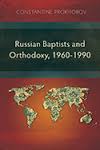
“For Moltmann, resurrection is the beginning of the rebirth of the whole creation, and it is “the rebirth of Christ.” Believers are possessed by the Spirit of the resurrection and through it are born again to a hope for eternal life. Like resurrection, rebirth is inception of a new form of human life. It is the anticipation of the resurrected life that Christ already holds. Moreover, in the event in which believers are born again to become children of God and heirs of his kingdom, the efficacies of Christ and the efficacies of the Spirit interpenetrate. We can call it either justification, or regeneration, but still we are describing the operation of the Spirit. Thus Moltmann concludes that experiences of the Spirit are unfathomable depth, because in them God himself is present in us, so that in the immanence of our hearts we discover a transcendent depth. If this Spirit of God is “the Spirit of the resurrection� then we are possessed by a hope which sees unlimited potentialities ahead, because it looks towards God’s future. In his words, “The transcendent depths of the divine Spirit and the eschatological breadth of the Spirit of the resurrection mean that we cannot talk about our �rebirth’ or �regeneration’ as if it were a one-and-for-all experience, something finished and done with that is now behind us. We are still involved in the experience of renewal, and the becoming-new travels with us.� In short, there is a growth in faith and a growth in the new life of the Spirit.
Rebirth and Mother Hood of Spirit
According to Moltmann, in rebirth, we are not experiencing the Spirit as a counterpart, but as a divine presence. He writes that, “If the new life is experienced and lived in the Spirit, then the Spirit is not itself the object of experience; it is the medium and space for experience.� The speciality of this kind of experience of the Spirit is that the Spirit can appear to be so mysterious not because it is far away rather because it is so close. Moreover, life in the Spirit is a life in the “broad place where there is no cramping� (Job 36:16). So in the new life we experience the Spirit as a “broad place� – as the free space for our freedom, as the living space for our lives, as the horizon inviting us to discover life. “The broad place� is the most hidden and most silent presence of God’s Spirit in us and round about us. Moltmann writes, “We explore the depth of this space through the trust of the heart. We search out the length of this space through extravagant hope. We discover the breadth of this space through the torrents of love which we receive and give. God’s Spirit encompasses us from all sides and wherever we are (Ps 139). Christ’s Spirit is our immanent power to live – God’s Spirit is our transcendent space for living.�
“Motherhood of the Spirit and the rebirth is a significant theme in the theology of Moltmann… interprets the experience of rebirth and divine comfort as revealing the femininity of the Spirit. Moltmann writes that, “If believers are ‘born’ again from the Holy Spirit, then the Spirit is ‘The Mother’ of God’s children and can in this sense also be termed a ‘feminine’ Spirit. If the Holy Spirit is ‘the comforter’ (Paraclete), it comforts ‘as a mother comforts.’ In this sense, it is the Motherly comforter of believers.’”
Role of the Holy Spirit in Protestant Systematic Theology
Varkey, Wilson (2011-08-01) Kindle Locations 4134-4165
March 5, 2018
Yahoo forum post # 19272
Note: I got an email concerning this thread of “They are the Redeemers, they are the ones who are going to manifest the salvation of this doomed humanity.”
to: Jagbir Singh
date: Mon, Mar 5, 2018 at 11:40 PM
subject: the Redeemer
good day, jagbir.
thank you all for posting extremely important words of Shri Mataji about the Redeemer, here in “1982-05-15, Puja in Brighton, You Must Understand Your Own Importance, Brighton, England”,
‘Tell them all about it. Give them the big message that the Redeemer has come now. There�s no time to sit down. This is the One Who is here. Better get up now! Don�t carry on with your old ideas and old things. [You] must know that this has happened.’
Btw, amruta.org gives it as Shri Lalita Puja, Understand your own importance
i will post that words of Her on the russian forum – to remember all of us to act
regards,
Ixxxxxxxx
——————————-
March 7, 2018
I believe we are missing the fact that the early, senior SYs and leaders were mandated with the task of being the very people that the Savior promised 2,000 years ago who will usher the salvation of humanity:
�Jesus solemnly assures the disciples that they will, in the future, perform even greater miracles than He. By this He means to say that through the power of the Holy Spirit, they will bring about the greatest miracle of all – the salvation of lost souls. He promises them that whatever they ask for, in connection with their ministry of bringing the miracle of salvation to lost men, will be granted them.� (Stallings, Picirilli 1985, 205)
The Paraclete’s birthday and the Savior’s Easter is coming soon. It has been 2000 years since Jesus and 50 years since the Paraclete promised the above. Shri Mataji is dead and gone. And so is Sahaja Yoga. And the very Redeemers who were supposed to commence spreading that message are either dead or will be dying over the years.
But to call them Redeemers is an insult to the memory of Shri Mataji. They are the very opposite of that as they have done everything possible to keep humans from finding out about the Big Message that Shri Mataji was very serious about.
So almost fifty years later we are just beginning to get genuine Redeemers who write: “i will post that words of Her on the russian forum – to remember all of us to act.”
Actually, for the last couple of days, I have been negatively affected by finding out Shri Mataji’s early 1980s call to declare that She is the Redeemer. And Shri Mataji believed that the early SYs were going to be “the Redeemers, they are the ones who are going to manifest the salvation of this doomed humanity.”
There are no words to describe the hypocrisy, hype and bullsh*t that pervaded SYs and their organization. I am writing in the past as thankfully this organization had been destroyed from within ………………… and that the early ‘Redeemers’ are either dead, dying or soon will be.
Where would we be today had Shri Mataji better disciples? I doubt She would have fared much better. Even in 2018 we have very few Redeemers capable of following the Paraclete. And if we are to follow Jesus that figure would have to be further reduced.
regards,
jagbir

The Paraclete Shri Mataji (1923-2011) Total number of Recorded Talks: 3058, Public Programs 1178, Pujas 651, and other (private conversations) 1249
“What are they awaiting but for the Hour to come upon them suddenly? Its Signs have already come. What good will their Reminder be to them when it does arrive?” (Qur’n, 47:18) “As the above verse indicates, God has revealed some of Doomsday’s signs in the Qur’n. In Surat az-Zukhruf 43:61, God informs us that ‘He [Jesus] is a Sign of the Hour. Have no doubt about it…’ Thus we can say, based particularly on Islamic sources but also on the Old Testament and the New Testament, that we are living in the End Times.” Harun Yahya
Good News (An Naba) of Resurrection (Al-Qiyamah): Videos 3474, Audios 1945, Transcripts 3262 and Events 2413
“Concerning what are they disputing?
Concerning the Great News. [5889]
About which they cannot agree.
Verily, they shall soon (come to) know!
Verily, verily they shall soon (come to) know!”
surah 78:1-5 Al Naba (The Great News)
5889. Great News: usually understood to mean the News or Message of the Resurrection.
Abdullah Yusuf Ali, The Holy Qur’n, 1989.
“I am really a proud Mother to see so many Sahaja Yogis. And one must understand that even if you get few people as newcomers, they may be few, but one has to realize that each one of you is now a Realized Soul. Each one of you has grown so much that you can create a nucleus yourself.
And after growing in a collective way together, now individually the seedlings have become strong shoots and they can definitely be transferred into different places and work it out, because each one of you is a prophet.
I wonder if you realize it or not….But you should all understand your own importance and your own quality that you have achieved.
In any other so-called fake organizations — for example, say, take the church — theres only one priest. In the whole locality there is one priest, though he doesn’t know anything about it, doesn’t matter! But still there’s only one person who is authorized even by [the] church. Everyone has to listen to one person.
But here, now, you all are dynamic people: each one of you is capable of giving a good lecture. Of course, all of you can give Realization very well, no doubt about it. In all your groups you must try standing on your own legs. Try in your own groups.
Think of all the dimensions into which you can shoot off. Because now you are ready � you are now the prophets. You don’t have to depend on anyone as such, or you don’t have to depend on your fellow beings also for that �individually you can do it.
Though you are connected with each other, you all understand the same language, you have got the truth together and you are all together; but the dynamism must come individually into you, and every one of you in your own sphere, in your own line can work it out, because you know all about Sajaha Yog.
Now those who are half-baked may not know. They still are rationalizing maybe something, doesn’t matter, they will also be all right. But as far as you all are concerned, you are all prophets, and as prophets you must stand up. Wherever you go, you talk of Sahaja Yoga, tell them that, “This has come to us, this is the light. We know everything.�
I mean you don’t have any doubts about it, isn’t it? But the trouble is that you feel that the others may not understand, they are stupid people, they are foolish people, or they are ego-oriented or they’re aggressive, or they’ll do this to you or do that to you. it’s true, but you must know that there’s not only one person who’s fighting it out, there are thousands all over the world who know your language, who know your thing, and they all know the same thing. So, you are not alone fighting it out.
Once you know that, then you’ll be amazed how much power will start flowing into you. The more you think about it, meditate upon your Self now, I would say, and know that you yourself, you are prophets. And then you’ll see the dimensions into which � so many are My dimensions sitting here, I can see that. So, in every field, in every walk of life, wherever you move, you have to talk about it and tell people.”
The Paraclete Shri Mataji
Shri Lalita Puja, You Must Understand Your Own Importance
Brighton, U.K.—May 15, 1982

“But you know that you have eternal life. You can never die. Death is not this body disappearing. Death is where you are absolutely without any control of your soul. Once you are a realized soul you have all the control, all the powers to take your soul wherever you feel like to be born if you like—if you don’t want you will not be born—to be born with the people, in the families, in the communities, wherever you like.”
The Paraclete Shri Mataji
To Achieve Complete Freedom, Cabella, Italy—May 7, 1995
“Birth, play, marriage, children, old age — life is finished. That is not living! Life is much deeper and more wonderful… When you know God there is no more sorrow.
All those you loved and lost in death are with you again in Eternal Life. The souls of those loved ones who departed before will come to welcome: fathers, mothers, wives, children, friends. Hundreds and thousands and millions of them! From hundreds and thousands and millions of past lives and rebirths! From hundreds and thousands and millions of millenniums ago! How many wives we must have had in previous lives and how many husbands God alone knows.”
The Paraclete Shri Mataji
London, U.K.—June 21, 1981

